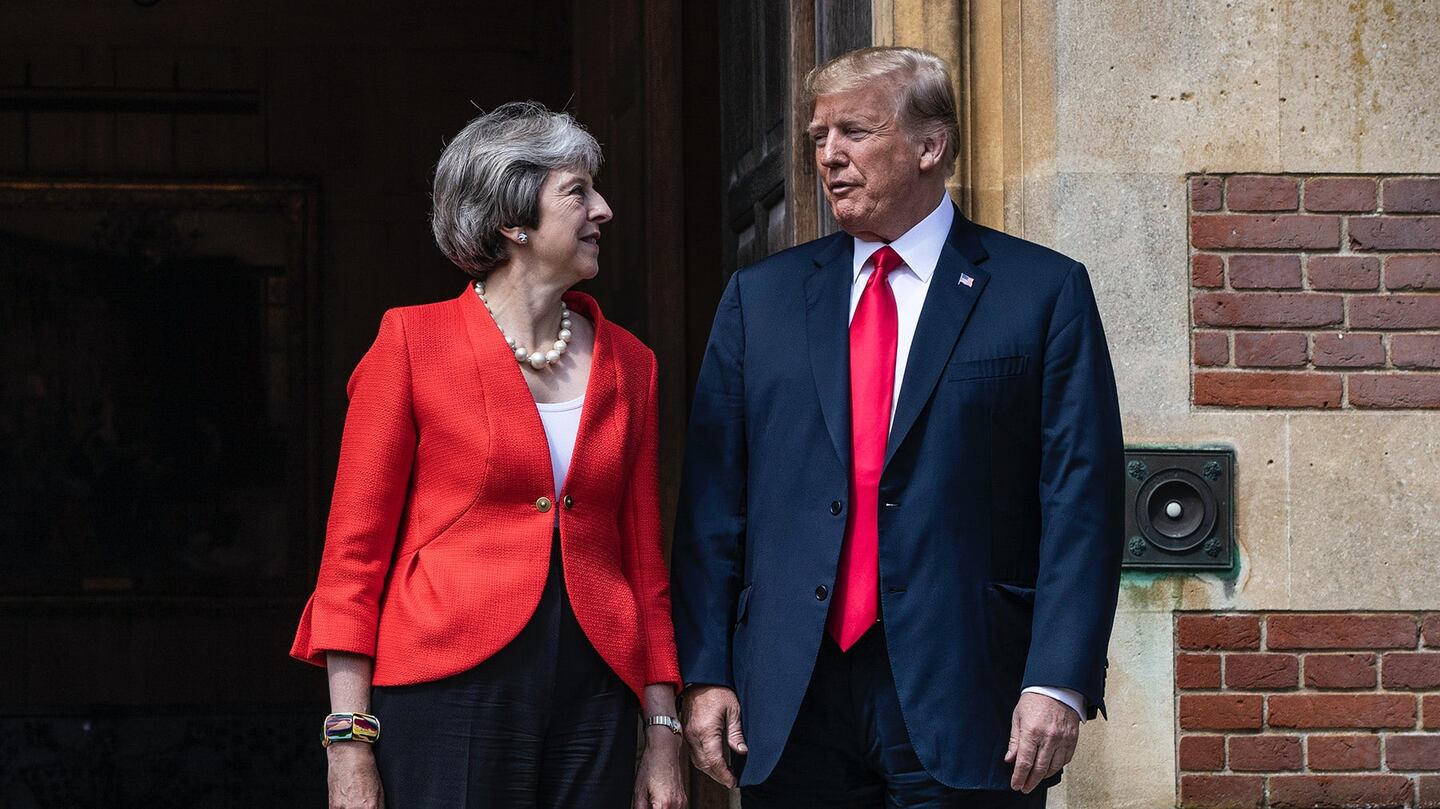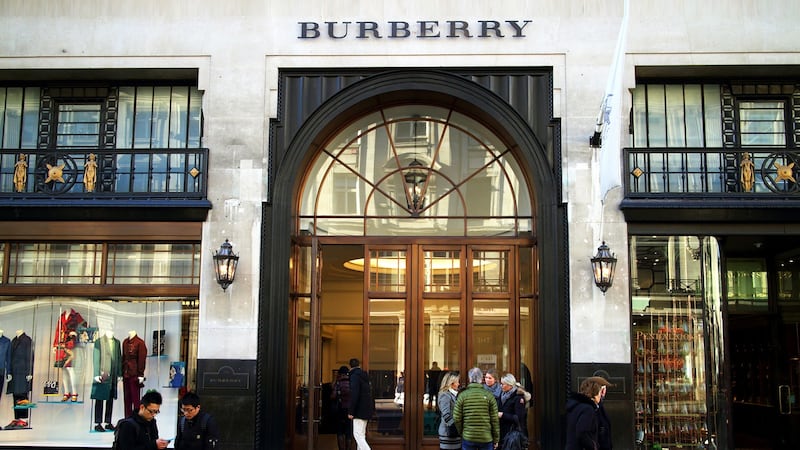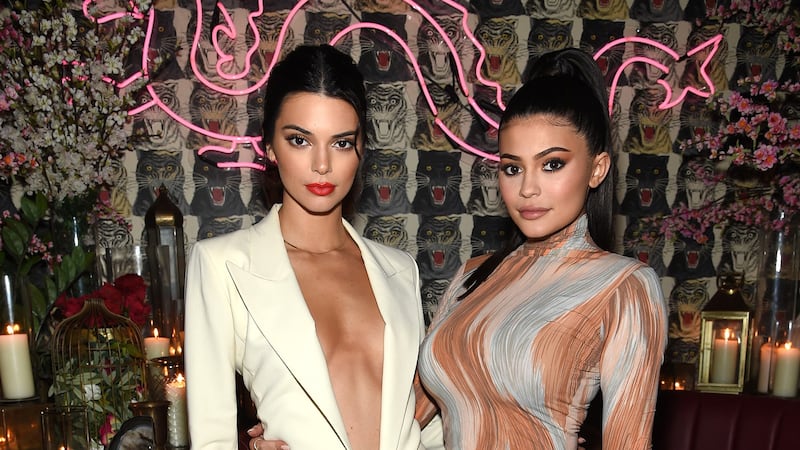
The Business of Fashion
Agenda-setting intelligence, analysis and advice for the global fashion community.

Agenda-setting intelligence, analysis and advice for the global fashion community.

Hello BoF Professionals, your exclusive This Week in Fashion briefing is ready, with members-only analysis on the key topic of the week and a digest of the week's top news.
This week, while much of the world was busy watching football, political storms on both sides of the Atlantic threatened serious damage to the global fashion business.
On Monday, Boris Johnson resigned as UK foreign secretary, deepening a political rebellion against a plan for a “soft” exit from the European Union put forward by British prime minister Theresa May. The following day, US president Donald Trump’s administration released a new round of proposed tariffs on $200 billion worth of Chinese goods, escalating a widening trade war between the world’s two largest economies that threatens to slow global economic growth.
Among the items targeted in the latest tariffs round were consumer goods like handbags, seemingly breaking Trump’s promise to bring “maximum pain on China, minimum pain on consumers” by avoiding product categories that would directly affect shoppers. The $34 billion round of tariffs imposed by the Trump administration on July 6 focused mostly on goods purchased by businesses, such as aircraft parts and industrial machinery.
ADVERTISEMENT
The new tariffs would be lower than the previous round — 10 percent versus 25 percent — and spared footwear and apparel, one of the product categories that Americans purchase most from China. But major US handbag-makers like Michael Kors and Tapestry — which owns Coach and Kate Spade — manufacture heavily in China and could be hard hit, wrote Goldman Sachs in a research note published this week. Shares in both Michael Kors and Tapestry fell after the administration’s latest tariffs announcement.
“The fact that the administration has included consumer products is concerning,” said Rick Helfenbein, president and chief executive of the American Apparel & Footwear Association, a US industry group representing hundreds of companies, including Calvin Klein, Michael Kors, Tapestry and others. “The result will be higher prices, lower sales and job loss.”
But ultimately, the trade war isn’t just about higher prices on handbags. Much of the American fashion industry outsourced production to China in recent decades because the US government and other major powers made clear that globalisation and free trade were here to stay. Now, the rules of the game appear to be suddenly and unexpectedly changing.
China’s government — which responded to Trump’s July 6 move to tax $34 billion worth of Chinese goods by increasing duties on the same amount of US imports — has vowed to take “firm and forceful measures” in response to the latest move. And Trump has pledged to respond with yet more tariffs, meaning apparel and footwear may not be safe for long.
The US is also locked in a trade dispute with the European Union, which has already targeted American fashion products like Levi’s jeans, with new import taxes in retaliation for the Trump administration's tariffs on imported steel and aluminium. “Long term, it could have an impact at how people look at American products and American companies. And that is something that we do worry about,” Levi Strauss CFO Harmit Singh told CNBC earlier this month.
Meanwhile, in the UK, the government appears on the verge of collapse, split over prime minister Theresa May’s plan for a “soft” exit from the European Union. Foreign secretary Boris Johnson’s exit on Monday was the second resignation from May’s most senior cabinet ministers in less than 24 hours. David Davis, the government’s Brexit secretary, resigned late on Sunday night, saying that May’s plan to maintain close ties with the European Union betrayed the result of the 2016 Brexit referendum in which a narrow majority of the British people voted to leave the 28-nation bloc, sending the pound to its lowest level against the dollar in 31 years.
The latest developments have raised the possibility that, with only nine months to go until the 29 March 2019 exit deadline, the UK could crash out of the EU without a deal in place, because the government cannot seem to agree on a negotiating position.
A “hard” Brexit, whereby Britain is locked out of the EU’s single market, would be bad news for fashion businesses. Among the consequences would be tariffs on imports and exports, lower consumer confidence and new barriers to the free movement of EU and British citizens living across Europe, creating problems for the recruitment and retention of talent for fashion companies whose foreign employees account for a large percentage of their workforce. To be sure, British megabrands like Burberry would suffer, as would their European counterparts.
ADVERTISEMENT
But crashing out of the EU without a deal would be nothing short of disaster. And political observers see plenty of turmoil ahead, especially if Johnson leads a rebellion against the government that other hardline Brexiteers will follow, as some have suggested.
In the immediate term, perhaps the biggest cost of both Britain’s Brexit turmoil and the Trump administration’s trade war is uncertainty. How can a business decide where to build a factory or establish an e-commerce operation if the fundamental terms of cross-border trade are unknown?
Longer term, the biggest threat is a fundamentally less globalised world, which would in turn slow new wealth creation in emerging markets, a key driver of fashion consumption.
“If the outcome is a less global world, this will act as a dampening factor for luxury goods growth,” said Luca Solca, head of luxury goods at BNP Exane Paribas. “Luxury thrives on new wealth being created in markets that get plugged into the global economy; China is a sterling example.”
THE NEWS IN BRIEF
BUSINESS AND THE ECONOMY

Burberry store | Source: Shutterstock
Burberry first quarter sales rise 3 percent. The British luxury brand said there was no change to guidance at constant exchange rates, adding that it was benefiting from an easing of currency headwinds, and was on track to deliver cost savings of £100 million ($132.6 million). For the 13 weeks to June 30, its retail revenue came in at £479 million, broadly flat on what it made in the same period last year.
ADVERTISEMENT
Fast Retailing posts record third-quarter profit. For the quarter ended May, the company's operating profit was 68.4 billion yen ($609.41 million), up 37 percent from a year ago. Results were driven by overseas Uniqlo sales that topped domestic sales for a third consecutive quarter. Fast Retailing, already Asia's biggest clothing retailer, reiterated its full-year operating profit view of 225 billion yen.
ASOS confident on profit guidance despite slowing sales growth. Total retail sales rose 22 percent to £802.7 million ($1.06 billion) in the four months ending June 30. The results came in below analysts' average forecast for growth of 25.8 percent, and lower than the 27 percent growth it reported in the earlier first half period. The group maintained its guidance for full year 2017 to 2018 sales growth of 25 to 30 percent, but said it would likely be towards the lower end.
Reebok to sponsor NYFW: Men's. The Adidas-owned sneaker brand will be a sponsor for the next four seasons, offering a vote of confidence in the event, which has struggled to retain top-tier designers. The partnership will give Reebok access to a pool of young designers. The company has already recruited a designer from last year's Fashion Future Graduate Showcase, as well as Kerby Jean-Raymond, whose label Pyer Moss was nominated for a CFDA Swarovski Award for Emerging Talent.
J. Crew expands its size range. The apparel company has partnered with Universal Standard, a brand that offers extended sizing, on a capsule of pieces that will go up to size 5x and mark the beginning of a larger rollout of new fits and size ranges at J. Crew.
PEOPLE

Kendall Jenner and Kylie Jenner | Source: Dimitrios Kambouris/Getty Images
Kylie Jenner on track to be youngest self-made billionaire. Forbes reports that the Kardashian half-sister sold more than $630 million worth of makeup since 2016 under her line, Kylie Cosmetics, which she owns 100 percent. Adding millions from TV programs, endorsements and after-tax dividends from her company, Forbes said Jenner was "conservatively" worth $900 million, and valued her company at nearly $800 million.
Two veteran US Vogue editors are stepping down. Phyllis Posnick, executive fashion editor since 1987, and Tonne Goodman, fashion director since 2000, are reducing their roles, signalling a changing of the guard atop Condé Nast's flagship fashion title. In addition, West Coast editor Lisa Love, who has been with the title since 1990, is leaving to take on a new corporate role. In the last several years, Condé Nast has implemented several rounds of layoffs and restructuring, but until now, Vogue has largely avoided senior editorial leadership changes.
Mr. Bags sells 3.24 million RMB worth of bags in 6 minutes. The influential Chinese fashion blogger helped Tod's sell 300 limited-edition handbags, each priced at 10,800 RMB (about $1,620), on his new Mini Program shop within WeChat, called "Baoshop." Now, he is readying for his next launch: a collection of limited-edition Montblanc handbags for both men and women. It will be the first time the stationery brand has introduced bags for women.
Carlo Benetton dies at 74. The co-founder behind the famed 'United Colors of Benetton' brand passed away in his home in the northern Italian city of Treviso. Carlo Benetton founded the clothing company in 1965 in Ponzano Veneto, a village in Italy's northeast, with his brothers Luciano and Gilberto and his sister Giuliana. The company went from strength to strength between 1982 and 2000. For the past decade it has been hit by dwindling sales.
MEDIA & TECHNOLOGY
L Catterton and JD.com invest in Secoo. The Chinese online luxury fashion retailer is focused on international business expansion after landing a $175 million investment from e-commerce giant JD.com and private equity firm L Catterton Asia. The move marks JD.com's first luxury market-related deal after it sold Google a $550 million stake in the company last month, and paid $397 million in June last year for a stake in Farfetch.
Facebook tests AR ads on news feed in the US. The ads will let users virtually interact with different products — from trying on Michael Kors sunglasses and accessories to visualising furniture in a room. Sephora, Bobbi Brown and some other brands will start testing the new ad concept this summer. Facebook has already tested AR ads on its Messenger app and said that brands like Nike saw higher engagement from users who viewed those ads.
Hypebeast shuts down its kids site. The vertical, which launched in July 2017 to cater to a streetwear-obsessed generation that is beginning to have kids, will live on through Facebook, Twitter and Instagram, where it has 95,800 followers. The Hong Kong-based media company also laid off about five editors in New York, including two who were dedicated to the children's site.
Target has a secret app for superfans. The invite-only app, called Studio Connect, lets members collaborate with Target designers and see their ideas in stores. The retailer keeps the group at roughly 600 members (0.002 percent of its 30 million weekly shopper base), who are each recruited via online research and receipt polls. They are not paid for the service, but can earn points toward discounts and gift cards.
BoF Professional is your competitive advantage in a fast-changing fashion industry. Missed some BoF Professional exclusive features? Click here to browse the archive.
From analysis of the global fashion and beauty industries to career and personal advice, BoF’s founder and CEO, Imran Amed, will be answering your questions on Sunday, February 18, 2024 during London Fashion Week.
The State of Fashion 2024 breaks down the 10 themes that will define the industry in the year ahead.
Imran Amed reviews the most important fashion stories of the year and shares his predictions on what this means for the industry in 2024.
After three days of inspiring talks, guests closed out BoF’s gathering for big thinkers with a black tie gala followed by an intimate performance from Rita Ora — guest starring Billy Porter.